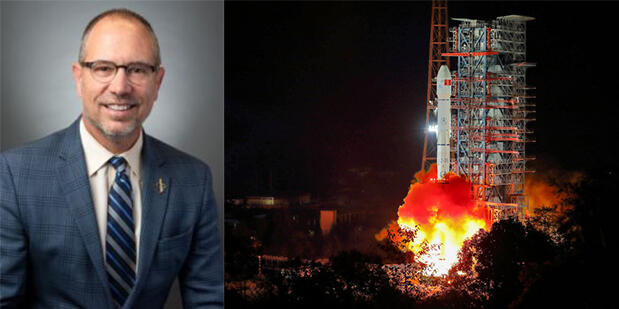America Is Losing the Second Space Race to China
The current U.S. space defense strategy is inadequate and on a path to failure. President Donald Trump’s vision for a Space Force is big enough. As he said on June 18, “It is not enough to merely have an American presence in space. We must have American dominance in space.” But the Air Force is not matching this vision. Instead, the leadership is currently focused on incremental improvements to existing equipment and organizational structures. Dominating the vast and dynamic environment of space will require revolutionary capabilities and resources far deeper than traditional Department of Defense thinking can fund, manage, or even conceive of. Success depends on a much more active partnership with the commercial space industry— and its disruptive capabilities.
U.S. military space planners are preparing to repeat a conflict they imagined back in the 1980s, which never actually occurred, against a vanished Soviet empire. Meanwhile, China is executing a winning strategy in the world of today. It is burning hard toward domination of the future space markets that will define the next century. They are planning infrastructure in space that will control 21st-century telecommunications, energy, transportation, and manufacturing. In doing so, they will acquire trillion-dollar revenues as well as the deep capabilities that come from continuous operational experience in space. This will deliver space dominance and global hegemony to China’s authoritarian rulers.
Click here to read the full essay on the Foreign Policy website. Autry’s earlier opinion pieces for Foreign Policy include “Beijing’s Fight for the Final Frontier” and “Trump’s China Policy is a Triumph."



